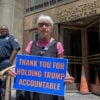Experts can’t always predict exactly how public policy will affect the nation, despite our best efforts. But when it comes to immigration policy, we have tried many of the types of reforms advocated by today’s Gang of Eight—so we should consider the effects these reforms had in the past.
In the mid-’80s, many Members of Congress advocated amnesty for long-settled illegal immigrants. President Reagan considered it reasonable to adjust the status of what was then a relatively small population, and as his attorney general, I supported his decision.
The path to citizenship was not automatic. Immigrants had to pay application fees, learn to speak English, understand American civics, pass a medical exam, and register for military selective service. Those with convictions for a felony or three misdemeanors were ineligible.
This should sound familiar, as it’s quite close to the path and provisions set forth by the Gang of Eight.
Today they call it a “roadmap to citizenship.” Ronald Reagan called it “amnesty.” And he was right.
The 1986 reform did not solve our immigration problem—in fact, the population of illegal immigrants has nearly quadrupled since that “comprehensive” bill.
Why didn’t it work? Well, one reason is that everything else the 1986 bill promised—from border security to law enforcement—was to come later. It never did. Only amnesty prevailed, and that encouraged more illegal immigration.
Today, we have many of the same needs we did then. We need to work on better securing our border. We need to modernize our legal immigration system, including effective temporary worker programs. And we need strong enforcement of the laws we already have, including those that enforce immigration policies in the workplace.
The Gang of Eight is making promises now. “Border security” is a big promise. But their proposal spends money and grants amnesty without the guarantee that this promise will be kept.
We are having much the same debate and being offered much the same deal in exchange for promises largely dependent on the will of future Congresses and Presidents.
Instead, we should learn from our mistakes.
America welcomes more immigrants than any other country. As Ronald Reagan said:
In this free land a person can realize his dreams—going as far as talent and drive can carry him. In return America asks each of us to do our best, to work hard, to respect the law, to cherish human rights, and to strive for the common good. The immigrants who have so enriched America include people from every race, creed, and ethnic background. Yet all have been drawn here by shared values and a deep love of freedom. Most brought with them few material goods. But with their hearts and minds and toil they have contributed mightily to the building of this great Nation and endowed us with the riches of their achievements. Their spirit continues to nourish our own love of freedom and opportunity.
But in keeping open that door of opportunity, we also must uphold the rule of law and enhance a fair immigration process, as Reagan said, to “humanely regain control of our borders and thereby preserve the value of one of the most sacred possessions of our people: American citizenship.”
The U.S. Attorney General from 1985-1988, Edwin Meese III is Heritage’s Ronald Reagan Distinguished Fellow Emeritus.
Read the Morning Bell and more en español every day at Heritage Libertad.
Quick Hits:
- Another of President Obama’s “recess appointments” of an official has been struck down by a court.
- A bipartisan group in the House (like the Gang of Eight in the Senate) has agreed to its own immigration plan.
- Yesterday, the House voted to repeal Obamacare.
- Texans are cleaning up from a tornado that killed six people and destroyed homes.
- What has your state decided about Obamacare’s Medicaid expansion? Watch our Google+ hangout today at noon ET to learn the latest.


























